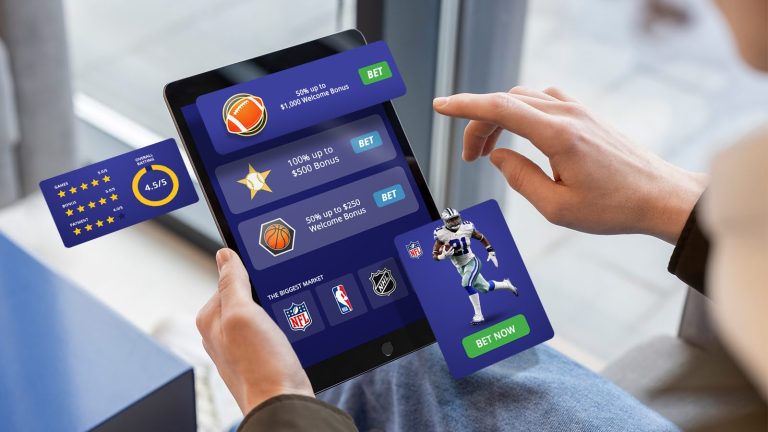The Legalities of Betting on Virtual Reality Sports
Virtual reality (VR) technology has evolved from a niche concept to a mainstream phenomenon, permeating various industries and reshaping the way we experience entertainment, gaming, and even sports. Within this immersive virtual realm, virtual reality sports have emerged as a compelling fusion of technology and athleticism, offering users the opportunity to engage in simulated sporting events from the comfort of their own homes. With the rise of VR sports, the concept of betting on virtual reality sports has garnered significant attention, presenting both opportunities and challenges within the legal domain. In this extensive exploration, we delve into the multifaceted legalities surrounding betting on virtual reality sports, dissecting regulatory frameworks, addressing ethical considerations, and envisioning the future of this dynamic landscape.
Understanding Virtual Reality Sports Betting:
At its core, virtual reality sports betting entails placing wagers on simulated sporting events that unfold within virtual environments. These virtual sports range from virtual football and basketball to racing and beyond, leveraging immersive VR technology to recreate the thrill of real-world sports competitions. Unlike traditional sports betting, which revolves around live events and real athletes, VR sports betting offers a unique blend of realism and fantasy, enticing enthusiasts with its interactive and immersive experiences. Whether it’s scoring a winning goal in a virtual soccer match or crossing the finish line in a simulated car race, virtual reality sports betting opens up a world of possibilities for both gamers and bettors alike.
Regulatory Framework:
The regulatory landscape surrounding betting on virtual reality sports is a patchwork of jurisdictional variations, with each country and region adopting its own approach to oversight and licensing. While some jurisdictions embrace virtual reality sports betting as a legitimate form of entertainment and commerce, others remain cautious or outright prohibitive in their stance. For operators seeking to enter the VR sports betting market, navigating this regulatory maze can be a daunting task, requiring compliance with a myriad of licensing requirements, anti-money laundering (AML) regulations, and know your customer (KYC) protocols. Furthermore, the absence of clear precedents and legal frameworks specific to VR sports betting adds another layer of complexity to the regulatory landscape, underscoring the need for clarity and harmonization across jurisdictions.
Legal Challenges and Issues:
Despite the burgeoning popularity of virtual reality sports betting, a host of legal challenges and issues loom on the horizon, casting a shadow of uncertainty over the industry’s future. One such challenge revolves around the lack of precedents and legal precedents specific to VR sports betting, leaving operators and regulators grappling with novel legal questions and uncertainties. Additionally, concerns related to data privacy and security pose significant hurdles for VR sports betting platforms, as the collection and processing of user data within virtual environments raise thorny ethical and legal dilemmas. Moreover, the potential for addiction and compulsive gambling behaviors in virtual reality sports betting underscores the importance of implementing robust responsible gambling measures and consumer protection initiatives.
Intellectual Property Rights:
In the realm of virtual reality sports, intellectual property rights play a pivotal role in shaping the landscape of innovation, creativity, and competition. From protecting the trademarks and copyrights associated with virtual sports leagues and teams to securing licensing agreements for the use of real athletes’ likenesses in virtual environments, intellectual property considerations permeate every aspect of VR sports betting. However, navigating the complex web of intellectual property laws and regulations poses challenges for developers, operators, and rights holders alike, requiring careful negotiation, licensing, and enforcement strategies to safeguard their intellectual assets.

Consumer Protection:
Ensuring the integrity and fairness of virtual reality sports betting outcomes is paramount to maintaining trust and confidence among consumers. To this end, robust consumer protection measures must be implemented to prevent fraud, cheating, and manipulation of virtual sports events. Moreover, accessibility and inclusivity considerations should be taken into account to accommodate individuals with disabilities and ensure equal participation in VR sports betting activities. By prioritizing consumer protection and responsible gambling practices, stakeholders can foster a safe and transparent environment for virtual reality sports betting, mitigating risks and enhancing the overall user experience.
International Cooperation and Standards:
In an increasingly interconnected world, international cooperation and standardization efforts play a crucial role in shaping the regulatory landscape of VR sports betting. Collaborative initiatives among governments, industry stakeholders, and regulatory bodies can help establish global standards and best practices for virtual reality sports betting, facilitating cross-border operations and ensuring consistency in regulatory oversight. By harmonizing regulations and fostering dialogue and cooperation at the international level, stakeholders can unlock new opportunities for innovation, investment, and growth in the burgeoning field of virtual reality sports betting.
Technological Advancements and Legal Implications:
The rapid pace of technological advancements in virtual reality, blockchain, and artificial intelligence has profound implications for the legal landscape of VR sports betting. From blockchain-based betting platforms that offer transparency and security to AI-powered algorithms for odds calculation and risk management, emerging technologies are reshaping the way we engage with and regulate virtual reality sports betting. However, these technological innovations also raise thorny legal questions and challenges, such as the integration of virtual currencies and decentralized finance (DeFi) in VR sports betting transactions. By staying abreast of technological developments and proactively addressing legal implications, stakeholders can harness the transformative potential of emerging technologies to drive innovation and competitiveness in the VR sports betting industry.
Litigation and Legal Precedents:
As virtual reality sports betting continues to gain traction, it is inevitable that legal disputes and litigation will arise, shaping the legal landscape and setting precedents for future cases. Notable legal challenges may include disputes over intellectual property rights, contractual agreements, and regulatory compliance issues. By closely monitoring legal developments and precedents, stakeholders can gain valuable insights into emerging trends and risks in the VR sports betting industry, enabling them to adapt their strategies and practices accordingly. Moreover, the establishment of clear legal precedents can provide much-needed clarity and certainty for operators, investors, and consumers alike, fostering a stable and conducive environment for growth and innovation in the VR sports betting market.
Ethical and Social Implications:
Beyond the legal considerations, virtual reality sports betting raises profound ethical and social implications that warrant careful consideration and dialogue. While VR sports offer immersive and exhilarating experiences for users, they also raise concerns about the potential impact on traditional sports industries and communities. Moreover, the addictive nature of gambling and the risk of compulsive behaviors in virtual reality sports betting underscore the importance of promoting responsible gambling behavior and implementing safeguards to protect vulnerable individuals. By fostering open and transparent discussions about the ethical and social implications of VR sports betting, stakeholders can work together to address concerns and mitigate risks, ensuring that virtual reality sports betting remains a source of entertainment and enjoyment for all participants.
Future Outlook and Opportunities:
Despite the myriad challenges and uncertainties surrounding virtual reality sports betting, the future outlook for the industry remains promising, with ample opportunities for growth, innovation, and investment. As virtual reality technology continues to advance and VR sports gain traction among audiences worldwide, the demand for immersive and interactive betting experiences is poised to soar. Moreover, regulatory innovation and adaptation are likely to facilitate the emergence of new business models and market dynamics in the VR sports betting landscape. By embracing responsible gambling practices, fostering collaboration and innovation, and prioritizing consumer protection, stakeholders can help shape a vibrant and sustainable future for virtual reality sports betting, unlocking new opportunities for entertainment, engagement, and economic prosperity.







